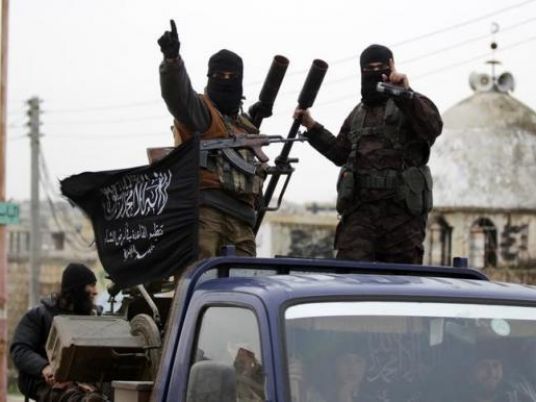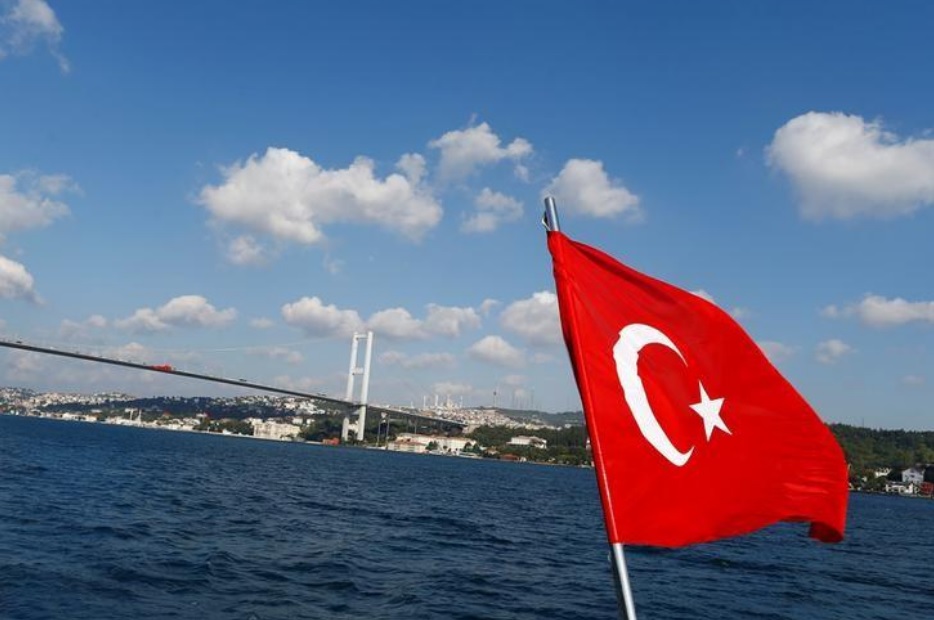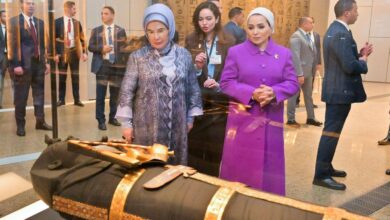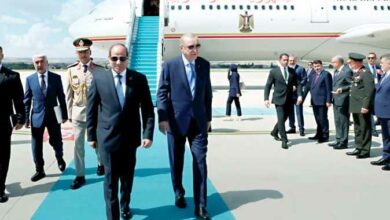
BEIRUT (AP) — It only took a few days for al-Qaeda-linked militants to seize more than two dozen towns and villages in northern Syria from rival insurgents earlier this month, expanding and cementing their control over an area the size of neighboring Lebanon.
The advance by Hayat Tahrir al-Sham, or the Levant Liberation Committee, was the most serious blow yet to a September cease-fire brokered by Russia and Turkey that averted a major government offensive in Idlib province, the last main stronghold of the Syrian opposition.
It highlighted the growing threat posed by al-Qaeda at a time when its rival, the Islamic State group, is on the verge of defeat and the US is preparing to withdraw its 2,000 troops from Syria. Although HTS has formally severed ties with al-Qaeda, experts say it is still closely linked to the global network founded by Osama bin Laden and could use its base in Syria to launch attacks in the West.
Fawaz Gerges, professor of Middle Eastern politics at the London School of Economics, says there is a “real danger” that the group’s advance “will not only worsen the humanitarian crisis for the 3 million inhabitants there, but also give (President Bashar) Assad and his allies the justification to assault the province.”
“Such a scenario would be as devastatingly bloody as the battle for Aleppo,” he said, referring to the months of heavy fighting over Syria’s largest city in 2016, which killed thousands of people and ended with government forces and their allies capturing the rebel-held east.
HTS includes large numbers of battle-hardened al-Qaeda fighters, and its capture of most of rebel-held Syria could force aid agencies to withdraw, leaving tens of thousands of civilians to fend for themselves. The opposition’s Free Aleppo Medical Directorate said that some 250,000 people will lose medical support after 43 facilities it runs cease operations due to a drop in aid from Western agencies after the latest HTS offensive.
The government has meanwhile stepped up its bombardment of Idlib and neighboring rebel-held areas. Pro-government media say Defense Minister Gen. Ali Ayoub and Brig. Gen. Suheil al-Hassan, who commands the elite Tiger Force, have recently visited the front lines with Idlib, raising fears of a new government offensive.
HTS now controls an area of about 9,000 square kilometers (3,475 square miles) or about 5 percent of Syria’s territory. The area is home to some 3 million people, many of whom have been displaced from other parts of the country.
Turkey has nearly a dozen observation posts in Idlib, but has shifted its focus further east, where it is preparing to launch an offensive against Syrian Kurdish forces.
Ankara, which supports the opposition, fears the Syrian government is trying to undermine the September agreement. Russia, a key ally of the Syrian government, has urged Turkey to act more resolutely in reining in militants in Idlib, who have launched attacks on Syrian government forces and the Russian military. Russia said last week that the escalation of hostilities in Idlib threatens the Russian air base in the neighboring coastal province of Latakia.
The first 10 days of January turned rebel-held parts of northern Syria upside down.
The powerful Nour el-Din el-Zinki rebel group dissolved itself after days of fighting with HTS during which it lost more than two dozen villages. The ultraconservative Ahrar al-Sham, one of the largest groups in northern Syria, also surrendered following attacks by HTS.
Two other groups, Thuwar al-Sham and Bayareq al-Islam, handed over Atareb, an important stronghold in Aleppo province, to HTS and withdrew north toward a region held by Turkish troops. Jaysh al-Ahrar handed over its checkpoints and said it would recognize the HTS-run civil authority.
A week after HTS crushed its opponents, a bomb targeted one of the al-Qaeda-linked group’s checkpoints at the southern entrance to Idlib, the provincial capital. The blast killed 11 people, including militants, and wounded several others.
Days later, HTS claimed that it captured 12 members of the Islamic State group who were allegedly behind the bombing. The group then released a graphic video like those produced by ISIS that showed the men being led to the scene of the blast and forced to kneel, blindfolded, before a line of gunmen. The video cuts out before they are shot in the back of their heads.
After the advance by HTS, which now controls a border crossing with Turkey and major highways, some international aid agencies suspended their work for fear of reprisals. HTS has been known to crack down on independent groups and civil society in areas under its control.
Mohammed Haj Omar, who heads the opposition’s health department in Aleppo province, said 250,000 people will be immediately affected and more than 3 million at a later stage.
UN spokesman Stephane Dujarric said earlier this month that the United Nations was still providing aid to the region.
He added that while the “full implications” of the HTS takeover were not yet clear, the UN and its partners “are closely following developments to ensure that independent, impartial and principled humanitarian action continues.”
The Soufan Center, a New York-based think tank, said the HTS takeover “alters the trajectory of the next phase in the civil war, tipping the balance of power in favor of the Assad regime.”
“From the beginning of the conflict in 2011, Assad has consistently sought to transform the narrative by making the fight about supporting his government or supporting terrorists, defined as any group fighting against the regime,” it said.




